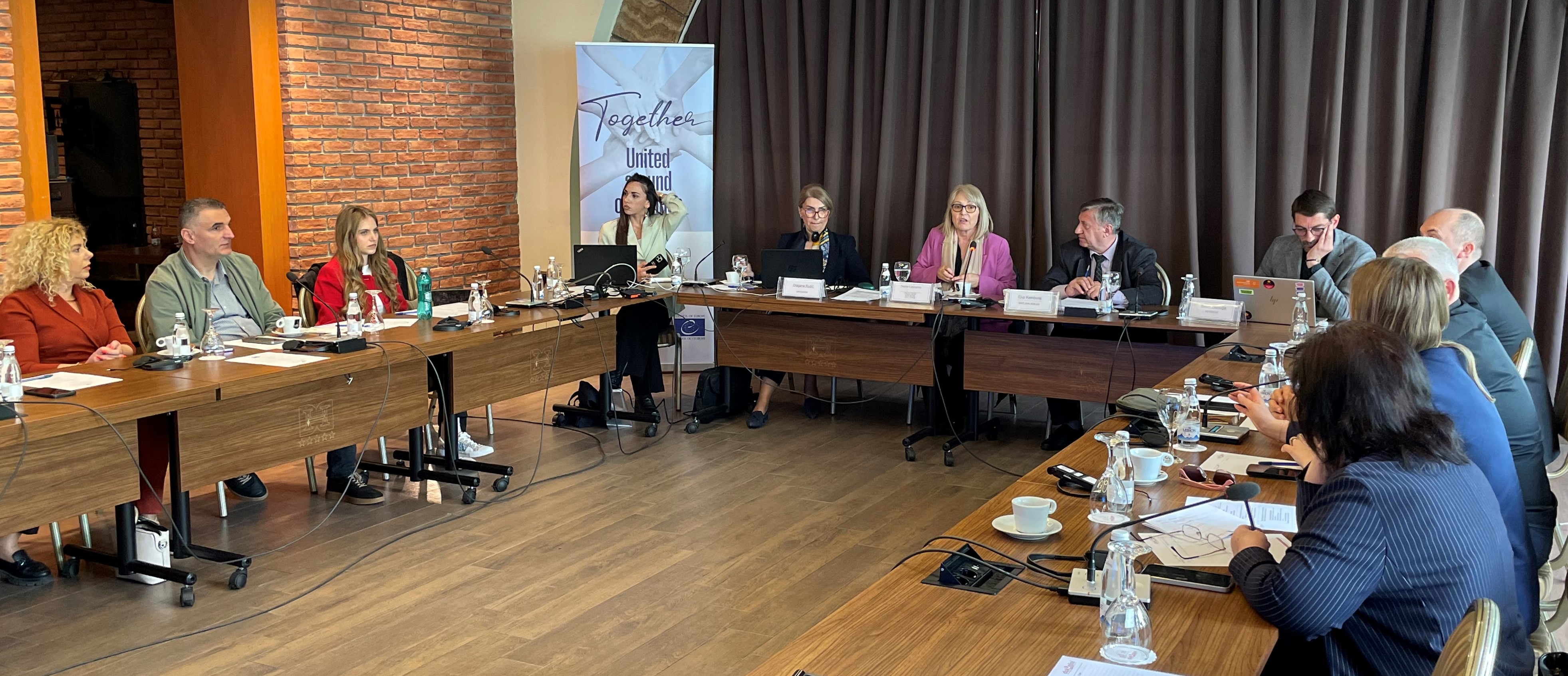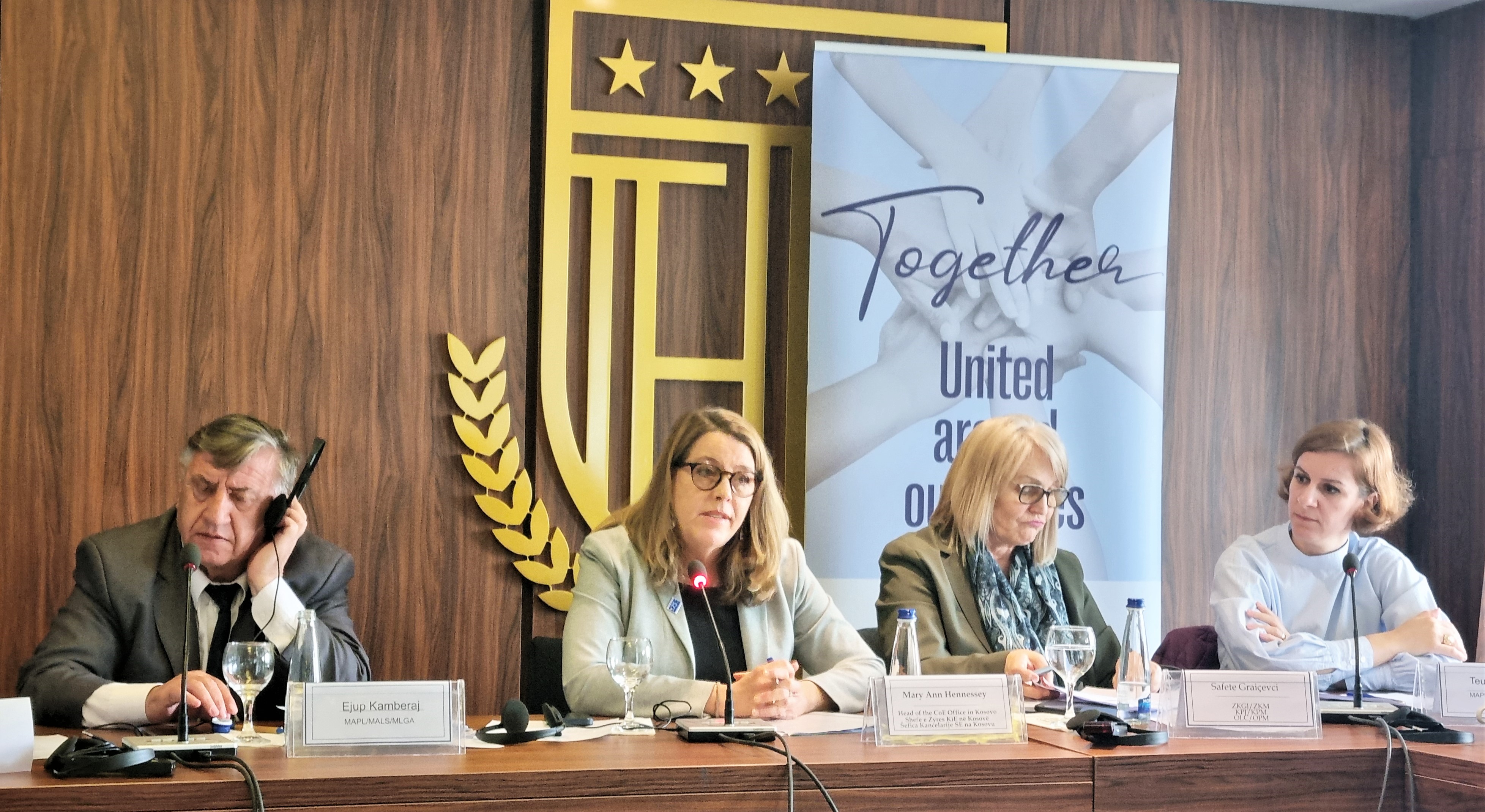Over the past weeks, Council of Europe Office in Pristina, has been supporting our partners — the Ministry of Local Government Administration, the Office of the Language Commissioner, and the Ombudsperson Institution — holding a series of seven regional meetings with a focus on one key issue: the implementation of the Law on the Use of Official Languages and Languages in Official Use.
The meetings took place in the regions of Prizren on April 3, Ferizaj/Uroševac on April 8, Gjakova/Đakovica on April 10, Gjilan/Gnjilane on April 15, Mitrovicë/Mitrovica on April 16, Peja/Peć on April 17, and Pristina on April 22. A total of 33 municipalities participated in these important discussions, which were organised under the Council of Europe's project “Fostering Societal Cohesion by Reinforcing Minority Rights and Minority Languages.”
This collaborative effort was vital for promoting linguistic diversity and addressing the recommendations stemming from the Advisory Committee on the Framework Convention for the Protection of National Minorities and its 5th Opinion urging the authorities to take all necessary measures to improve implementation of the Law on the Use of Languages.
Mary Ann Hennessey, Head of Council of Europe in Pristina, invited the authorities to allocate sufficient resources to ensure the efficiency and quality of translations. “This includes in particular strengthening translation capacities, recruiting and training bilingual and multilingual staff, as well as distributing resources and guidelines to municipalities to improve the fulfillment of their functions in this regard,“ Hennessey said during the meeting held in Mitrovicë/Mitrovica.

These discussions weren’t just theoretical — they were about practical change. Local governments play a crucial role in ensuring that language rights aren’t just guaranteed by law, but actually respected on the ground.
The meetings enabled municipal representatives, language policy network members, and institutional partners to address some of the most pressing challenges such as the publication of official documents in all official languages on municipal websites, the availability of translators, the proper display of inscriptions in the public spaces, and the need to strengthen coordination between the central and the local level.
The Council of Europe will prepare a report with recommendations to be translated into concrete actions for the support of relevant institutions in charge of the implementation of the law.






